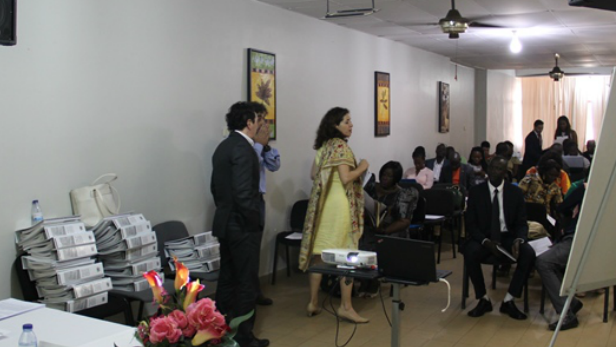
The number and scale of these criminal activities threaten any efforts to stabilize and develop political and social institutions in Guinea-Bissau. Such forms of transnational organized crime can only be fought by capable law enforcement agencies (LEA) coordinated with the other actors of the justice chain, effectively using information and resources available, as well exploring all international forms of cooperation.
ROLSI, in coordination with UNODC, set up a dedicated capacity (in its police sub-component) to help national authorities overcome the absence of contact points abroad, the inexistence of clear communication guidelines, instructions and technical communication means. Through targeted training and development of SOP, ROLSI builds the capacity of LEAs, to combat transnational organized crime.
ROLSI and UNODC also work jointly in supporting the implementation of national plans to fight organized crime and drug trafficking, and to establish the SSR-mainstreamed WACI’s Transnational Crime Unit. Further they are cooperating to strengthen border control and maritime security and devise support to strategies and operations in the regions of Guinea-Bissau, in line with international best practices. Through the Regional Offices located in Bubaque (Bijagos archipelago) and Buba (South), ROLSI and UNODC are mutually reinforcing their own capacity to assist national authorities in preventing and investigating DTOC. Two PADLOCK operations were launched throughout the country leading to confiscation of illegal Bissau-Guineans and foreign passports, drug seizures and several detentions. The AIRCOP program at Bissau International Airport also lead to multiple drug seizures and arrests.
At the political level, the mission is assisting parliamentarians to draft legislation enabling the confiscation of assets whose origin cannot be explained, as well as other bills on money laundering, funds tracking and letters of mutual assist.

